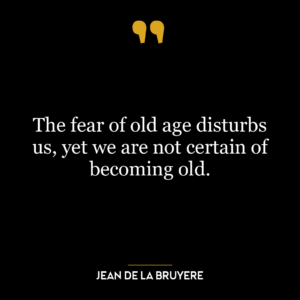The quote “It is unbecoming for young men to utter maxims” expresses the idea that wisdom and deep insights often come from lived experiences, age, and maturity. Maxims are short, pithy statements expressing a general truth or rule of conduct. When young people, who presumably have less life experience, utter maxims, it may come off as pretentious or insincere, as if they are trying to appear wise beyond their years without the depth of understanding that comes from experience.
This quote suggests that there is a certain decorum or appropriateness in knowing when to speak and what to say, based on one’s age and experience. It implies that wisdom is something to be earned over time, not something that can be faked or rushed.
In today’s world, this idea can be applied in various ways. For instance, in the age of social media, where everyone has a platform to share their thoughts and opinions, it’s common to see young people sharing quotes, maxims, or “life advice”. While this isn’t inherently wrong, it’s important to remember that true wisdom often comes from personal experience and maturity. Sharing a quote doesn’t necessarily mean one fully understands or embodies the wisdom within it.
In terms of personal development, this quote may serve as a reminder to be patient with oneself. Instead of rushing to appear wise or knowledgeable, one should focus on gaining real experiences, learning from them, and growing naturally. It’s about authenticity and understanding that wisdom is a journey, not a destination. It also encourages humility and continuous learning, reminding us that it’s okay not to have all the answers, especially when we’re young.













